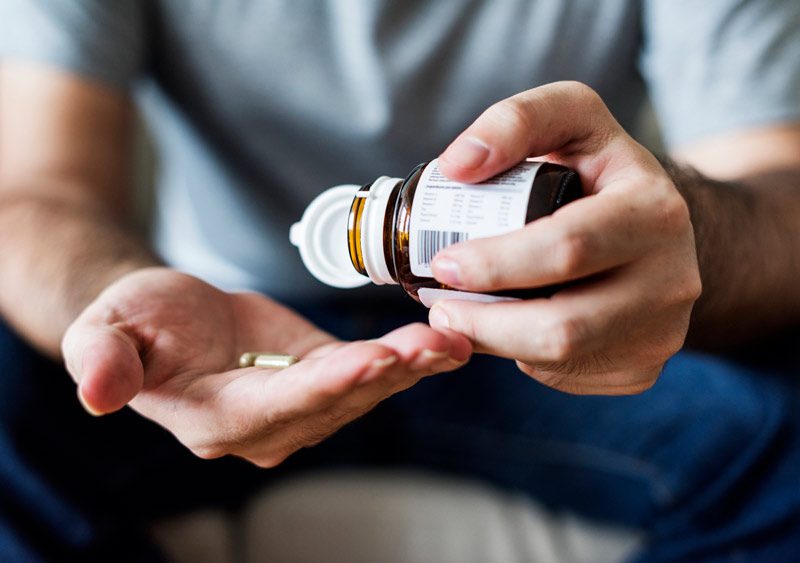Navigating the world of prostate health can feel overwhelming, especially for men grappling with the discomfort of an enlarged prostate, clinically known as benign prostatic hyperplasia (BPH). As age advances, many find themselves facing a common yet often overlooked challenge: the struggle to manage urinary symptoms that can disrupt daily life.
In the quest for relief, a myriad of medications claims to offer help. But the question remains—what truly works? From alpha-blockers that aim to relax the muscle fibers in the prostate, to 5-alpha-reductase inhibitors that target hormonal pathways, the landscape is intricate and varied.
Amidst the promise of these treatments, it’s essential to discern fact from fiction, to sift through the noise and find what genuinely alleviates symptoms for individuals. This article delves into the medications available, evaluating their effectiveness, side effects, and the latest research, providing men with critical insights into managing their prostate health.
Introduction to Benign Prostatic Hyperplasia (BPH)

Benign Prostatic Hyperplasia (BPH) is a common condition that affects many men as they age, often leading to a range of urinary symptoms that can significantly impact quality of life. Characterized by the non-cancerous enlargement of the prostate gland, BPH can cause difficulties such as frequent urination, urgency, and a weakened urine stream.
The condition arises when hormonal changes associated with aging cause the prostate to swell, potentially pressing against the urethra. As a result, men may find themselves making numerous trips to the bathroom throughout the day and night, struggling with the frustration of incomplete emptying.
Understanding the underlying mechanisms of BPH allows for more effective management strategies, particularly the various medications available that aim to alleviate symptoms and improve overall function.
Combination Therapies

Combination therapies have emerged as an intriguing approach in the management of enlarged prostate, or benign prostatic hyperplasia (BPH). Rather than relying solely on a single medication, healthcare providers are increasingly considering multifaceted regimens that target different pathways involved in prostate enlargement.
For instance, pairing alpha-blockers—medications known for their ability to relax muscle fibers in the prostate—with 5-alpha-reductase inhibitors, which reduce hormone levels linked to prostate growth, can usher in a synergistic effect. This dual action not only alleviates urinary symptoms more effectively but may also slow the progression of the condition itself.
However, the intricacies of each patient’s health status and medication tolerance must be taken into account, as the potential for enhanced efficacy should always be weighed against the risk of adverse effects. Thus, the landscape of treatment for an enlarged prostate is evolving, encouraging a more personalized and dynamic approach that aims to improve quality of life for patients.
Lifestyle Changes and Their Impact on BPH Symptoms

Lifestyle changes can significantly influence the symptoms of benign prostatic hyperplasia (BPH), often as effectively as medications, yet they are frequently overlooked in treatment plans. Adopting a healthier diet, rich in fruits and vegetables while reducing red meat and refined sugars, can have a profound effect on prostate health.
Regular physical activity, even a brisk 30-minute walk most days, is not just beneficial for overall well-being—it can help alleviate urinary symptoms by improving blood flow and reducing stress. Moreover, limiting alcohol and caffeine intake often results in fewer nighttime trips to the bathroom.
Beyond diet and exercise, techniques such as stress management through mindfulness or yoga can also provide relief. Each of these changes offers a multi-faceted approach, creating a ripple effect that may enhance the quality of life for those grappling with BPH, promoting not only physical wellness but emotional resilience as well.
Conclusion
In conclusion, navigating the treatment landscape for an enlarged prostate can be challenging, given the variety of medications available and their differing efficacy. While some medications may provide relief from symptoms, others may come with undesirable side effects that can affect a patient’s quality of life.
It’s essential for individuals to consult with their healthcare providers to determine the best course of action tailored to their specific needs. Emerging options, like Prostalite, offer promising alternatives that merit consideration in ongoing discussions about managing this common condition. Ultimately, informed decision-making and open communication with healthcare professionals will be crucial in achieving optimal outcomes for those affected by an enlarged prostate.

